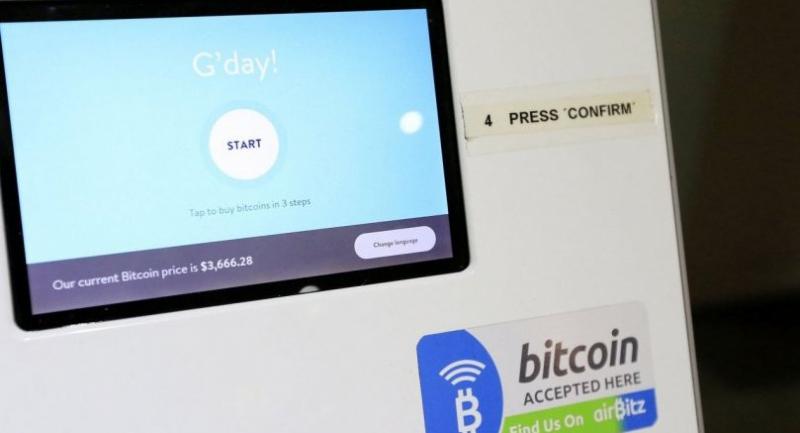Is it safe to invest in initial coin offerings?

KUALA LUMPUR - Startups are relying on cryptocurrency to raise funds, but what are the risks to investors?
Initial coin offerings (ICOs) are irritating capital market regulators around the world.
Start-ups are launching new ICOs almost every day, seeking to raise millions to fund their projects via the use of a new cryptocurrency. Investors are sometimes promised big returns, but mostly, they are encouraged to read what the project is all about and participate if they think it’s going to be a great innovation. No doubt, there are some dubious offerings out there.
What irks the mainstream is this: raising money from the public is a highly regulated activity and rightly so. You can’t have anyone willy-nilly approaching the public for investments.
This is why governments have developed laws around fund-raising activities, to protect investors, encourage investments and weed out the wrongdoers.
Then, all of a sudden, you have the ICO phenomenon. Issuers put out white papers and info memos that bare some crude resemblance to the regulator prospectus. There are hardly any safeguards. Importantly, there isn’t an intermediary or regulator who vets through offerings, the backgrounds of issuers and a whole lot of other diligence work in this process.
And guess what? Even in the traditional initial public offering (IPO), after such checks are done, a handful of large IPOs can have inaccurate information or some level of non-disclosure that tampers with the price discovery process.
So, imagine now you have a bunch of people holed up in a rented room drumming up some serious blockchain-based plans to make an industry more efficient. They then write their white paper, put in some notes on the code they are writing to power this enterprise and come up with a cool-sounding name for their new cryptocurrency.
This is then posted on ICO forums with dates for the pre-sale and sale of the said new digital currency. Why would anyone put their money into such unvetted ideas?
To be fair, ICOs in the right hands can be used to raise funds for real cutting-edge innovation in the blockchain world. One of the most well-known investors in ICOs today is Tim Draper, an established venture capitalist whose firm was an early investor in Skype before it was sold to eBay in 2005 for US$4.1 billion. Draper has been among the earliest and most vocal supporters of bitcoin and blockchain innovation.
Draper’s investments in ICOs so far include a self-governing blockchain project (Tezos), a liquidity mechanism for smart contracts (Bancor) and a decentralised tool for fighting email spam (Credo), it has been reported. There are also some members of the cryptocurrency community who are looking to produce standards for ICOs to avoid scams.
So, it is not unexpected that a whole lot of people are investing in ICOs and doing so using the main digital currencies of bitcoin and ether. And this is where one begins to get a feel of this movement.
For starters, you need to have dabbled in bitcoin, the unregulated digital currency with a market capitalisation of around US$53 billion today. So, it is not exactly mainstream investors who would participate in ICOs, but then again, this could be changing.
The rise in the value of bitcoin and ethereum has been well documented and that is galvanising interest. As one knowledgeable person in this area told me, it is the “fear of losing out” or FOLO factor which is driving many to invest in cryptocurrencies and ICOs. In a country where loads of people have already been drawn into illegal investment schemes in the past, ICOs are likely to be well within the radar of a number of Malaysians who seem unfazed by the risky nature of these investments.
The regulators of two hotbed ICO markets have reacted, namely, the United States and Singapore, warning that they may deem ICOs as the sale of a form of security, which therefore needs to be regulated.
Two things could happen. Issuers could now seek to do their ICOs in other markets – many are already talking about Hong Kong becoming the next location of choice. Another possibility, though, is that an issuer could try to word his ICO literature in such a way that it would be hard for any regulator to deem it an issuance of security in any form.
Perhaps, regulators should come up with a new set of guidelines for ICOs. This entails a minimal level of vetting and due diligence on the promoters and verification of technology. Such a move is likely to fly in the face of many people involved in the digital economy. They don’t want to be regulated, arguing that central authorities stifle innovation and add unnecessary costs. Eventually, a middle-of-the-road approach may surface, adding credibility to companies wanting to conduct ICOs.
Malaysia has made some notable progress in encouraging innovation in the financial space by way of the Securities Commission legitimising equity and debt crowdfunding and now moving into the robo advisory space. The central bank has also opened a sandbox to experiment with determined fintech companies that meet some basic criteria. Regulating ICOs should be next.
